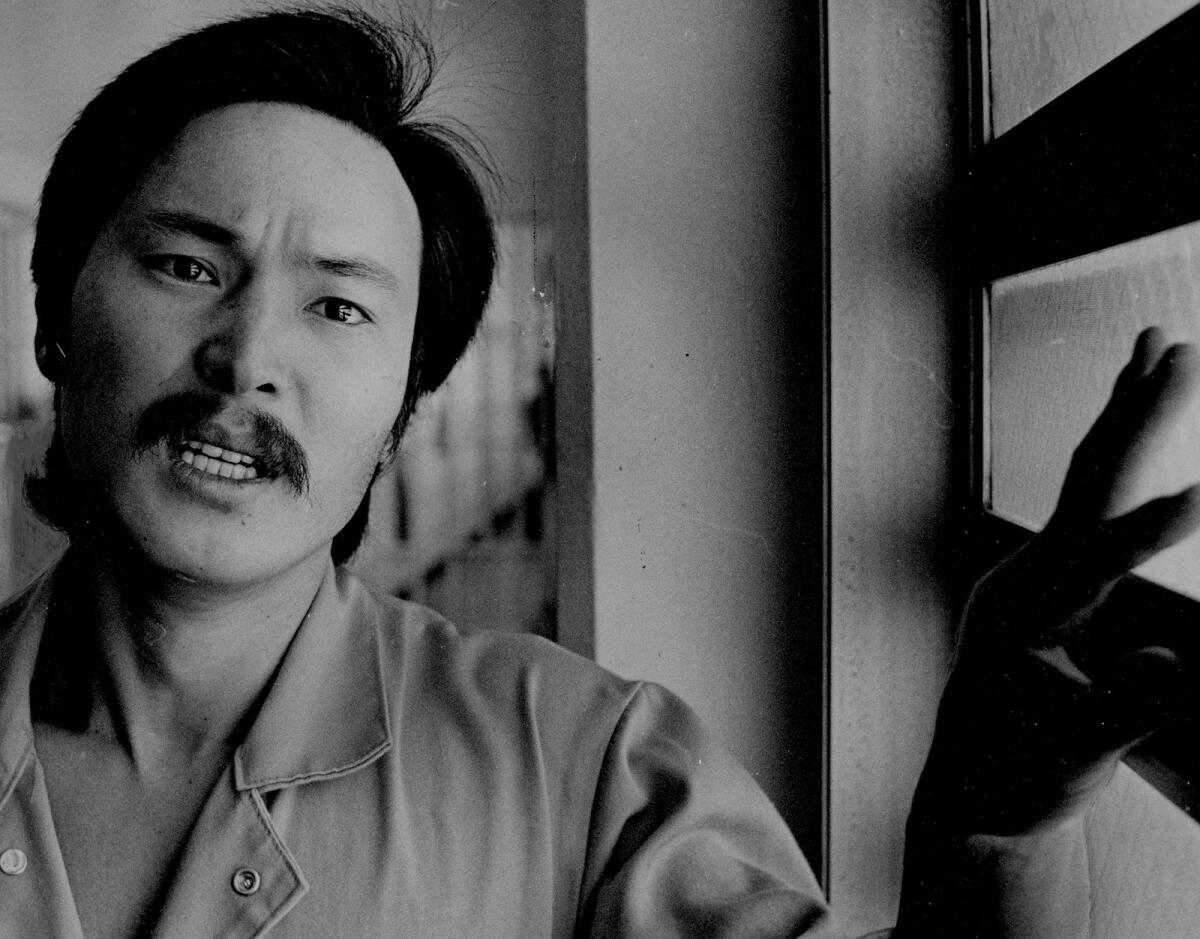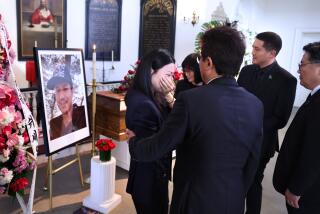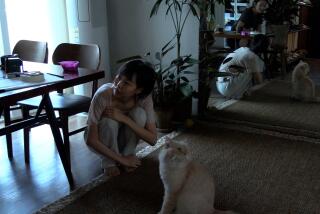Review: ‘Free Chol Soo Lee’ charts the rise of a community and the toll racism took on one man

Chol Soo Lee’s life was a series of trials, and that goes beyond the California courtrooms where his fate was out of his hands. A Korean immigrant whose 1973 framing for a crime he didn’t commit sparked a pan-Asian movement against structural racism, Chol Soo’s hard road from unseen to victimized to immortalized is the kind of story often treated as efficiently inspiring, about the power of a community — in this case, emboldened Asian Americans — to expose systems of oppression.
What of the individual, though, who exists apart from the cause, whose scars go back to childhood, and whose pain continues after headlines fade, outside activism’s ready reach? Julia Ha and Eugene Yi’s humanely powerful documentary “Free Chol Soo Lee” may take its name from the directive so often seen on placards and chanted by the faithful in the years-long fight to get Chol Soo out of prison. But the title’s first word is a descriptor as well in this deeply considered and affecting portrait, a mix of archival footage and reminiscing interviews that sensitively examines the weight of being a symbol when the legacy is set before the life is fully lived.
For your safety
The Times is committed to reviewing theatrical film releases during the COVID-19 pandemic. Because moviegoing carries risks during this time, we remind readers to follow health and safety guidelines as outlined by the CDC and local health officials.
Brought to San Francisco from South Korea at the age of 12 by his mother, Chol Soo had already survived a Dickens-via-Kafka upbringing when, as a streetwise 21-year-old known for his disarming smile and odd-jobs presence, he was pegged by cops as the shooter in a Chinatown gang killing at a crowded intersection. A flimsy case built from bad ballistics and white authorities’ pick-any-Asian mindset led to a life sentence at California’s most violent state prison, where his woes deepened: After killing an Aryan Brotherhood inmate in self-defense, Chol Soo landed on death row.
But the whiff of injustice had by then reached veteran Korean American investigative reporter K.W. Lee, whose Sacramento Union articles questioning the original verdict spurred a movement from Korean churches to public demonstrations, and the formation of a defense league. Chol Soo’s face was on posters, he got his own folk ballad, and soon top-drawer legal talent was coming on board for a hard-won retrial in 1983. A lonely immigrant, who had gotten used to being “the only Korean” wherever he was, had become a galvanizing symbol for the pernicious effect of America’s special brand of anti-Asian racism.
Ha and Yi capture the sweep, righteousness and consequence of the effort to exonerate Chol Soo with spirit and fascinating details. It also serves as a welcome corrective to the late-’80s Hollywood version of Chol Soo’s injustice that unsurprisingly erased the Asian American community’s work and white-saviored the narrative. (They don’t name that film, so this review won’t either.)
But just as importantly, we also learn that it was all a lot to process for the troubled soul whose fate hung in the balance. From archival interviews, and writings narrated for us by prison reform advocate Sebastian Yoon, the soft-spoken Chol Soo’s gratitude for the effort made in his name — “They saw me,” he said of the many letters he received — still masked plenty of hurt and uncertainty. What did it mean that complete strangers spent years fighting for him, while his hard-edged mother — a cruel, intermittent figure in his life — was seemingly the last to join the effort? And like many behind bars, he was plagued by the blackest of thoughts but worried that voicing them would “burden” everyone.
Chol Soo’s turbulent life on the outside is the poignant third act to Ha’s and Yi’s thoughtful twin narrative, a simultaneously celebratory film about impactful Asian American activism and a sobering gut-check about the psychic brutality of racism and incarceration. In its clear-eyed empathy for the totality of life, “Free Chol Soo Lee” is only deepened by not ignoring what happens when the spotlight fades on a righted wrong, and what’s left are demons, trauma, guilt and that thing both sought after and scary: being free.
'Free Chol Soo Lee'
In English and Korean with English subtitles
Not rated
Running time: 1 hour, 26 minutes
Playing: Starts Aug. 26, Laemmle Royal, West Los Angeles
More to Read
Only good movies
Get the Indie Focus newsletter, Mark Olsen's weekly guide to the world of cinema.
You may occasionally receive promotional content from the Los Angeles Times.










